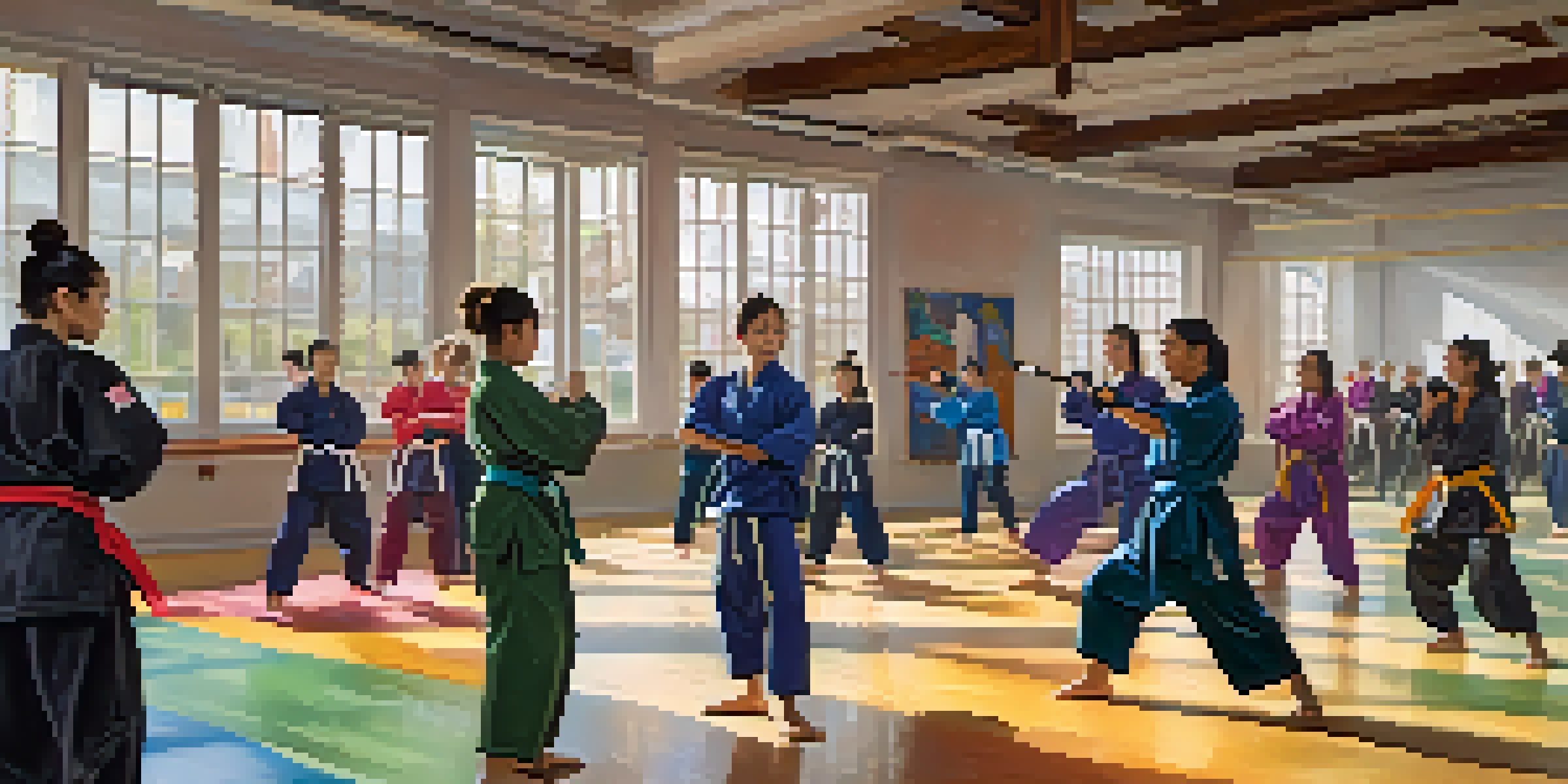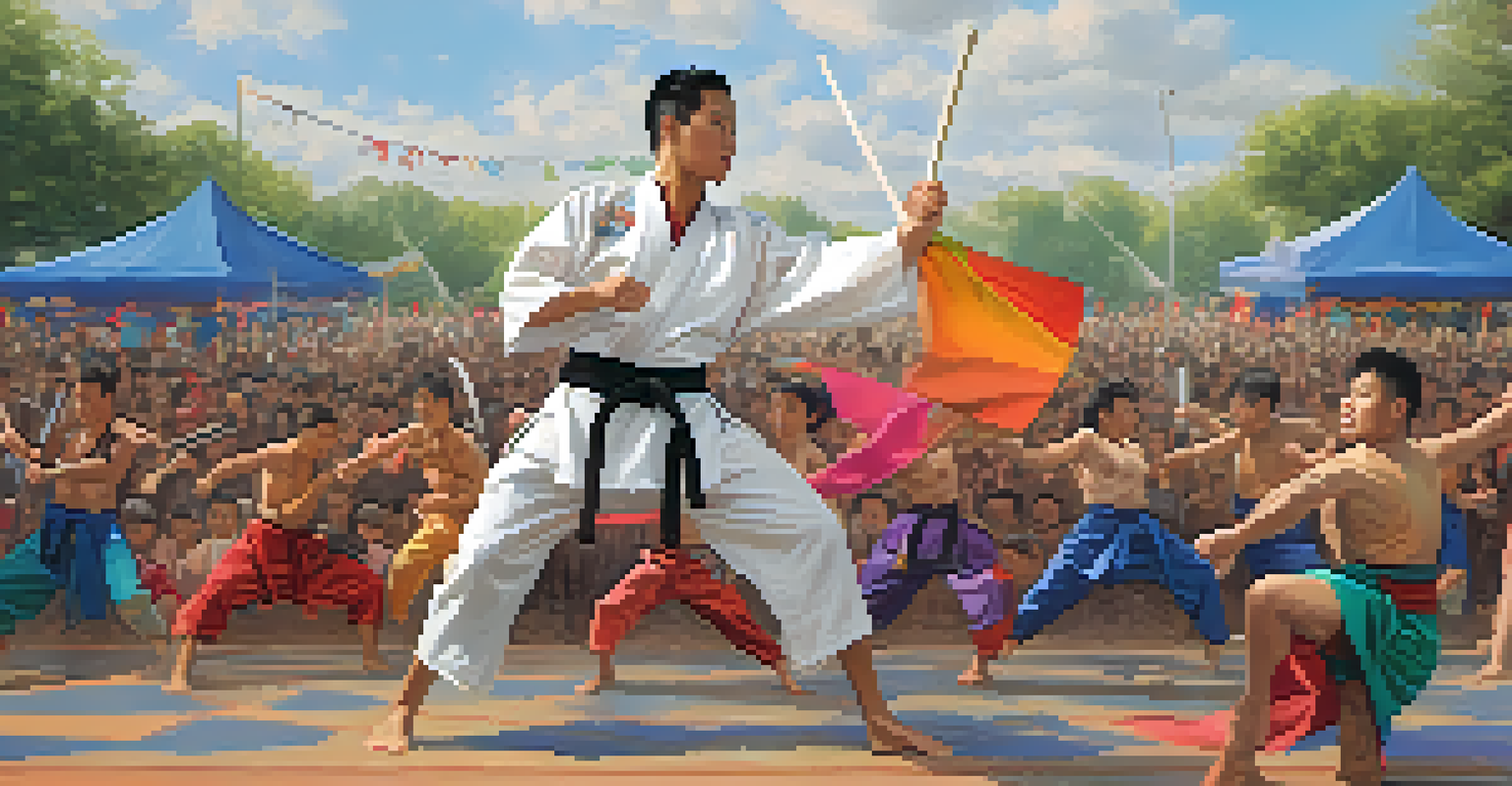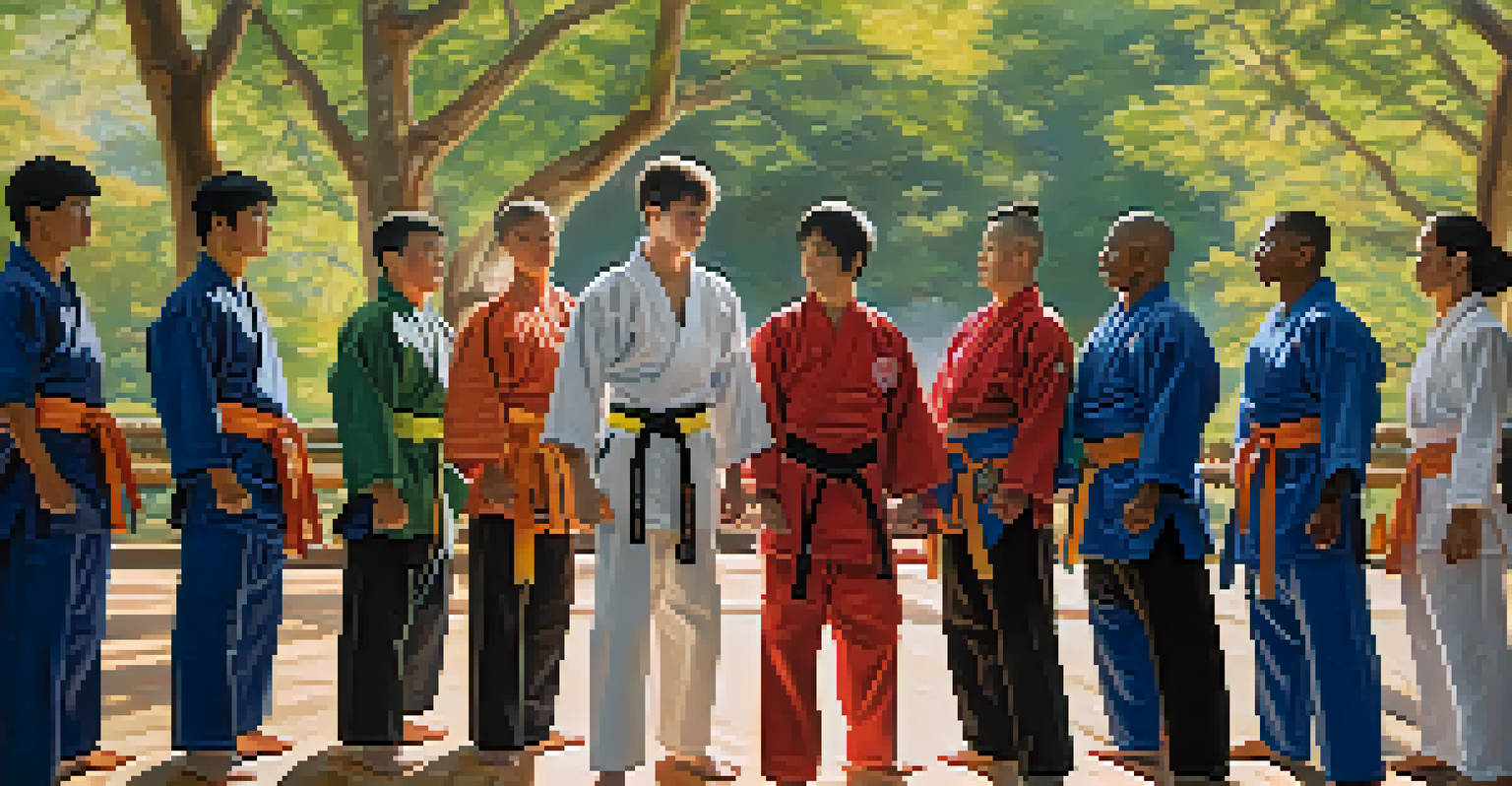The Intersection of Gender Identity and Martial Arts Culture

Understanding Gender Identity in Modern Society
Gender identity refers to a person's internal sense of their gender, which might align with their biological sex or differ from it. This concept has gained significant attention in recent years, broadening our understanding of gender beyond the traditional binary framework. In modern society, more individuals are embracing diverse identities, paving the way for conversations about inclusivity and acceptance.
It is not our differences that divide us. It is our inability to recognize, accept, and celebrate those differences.
As people become more aware of gender identity, various communities, including martial arts, are starting to reflect this change. This evolution provides a valuable opportunity for martial arts to become more inclusive, allowing practitioners of all gender identities to participate and thrive. By fostering an environment of acceptance, martial arts can contribute positively to the broader societal discourse around gender.
It's crucial to recognize that understanding and accepting gender identity is not just a trend; it's an essential aspect of fostering a supportive community. The intersection of gender identity and martial arts culture is a growing conversation that highlights the importance of empathy, respect, and understanding in all areas of life.
The Role of Martial Arts in Promoting Inclusivity
Martial arts have long been a space for discipline and self-improvement, but they also hold the potential for significant social change. Many martial arts schools are beginning to prioritize inclusivity, welcoming practitioners of all gender identities. This shift not only enhances the training environment but also encourages individuals to express themselves authentically.

By creating inclusive spaces, martial arts can serve as a model for other communities. Classes that embrace diversity can help dismantle stereotypes and challenge rigid gender norms. When students see role models who break traditional molds, it empowers them to pursue their passion without fear of judgment.
Understanding Gender Identity
Gender identity is an essential aspect of personal identity that extends beyond traditional binary frameworks, promoting inclusivity and acceptance in society.
Moreover, martial arts foster camaraderie and respect among practitioners. By encouraging students to support one another, schools can create a culture that values each person’s unique identity, ultimately leading to a richer and more vibrant community.
Challenges Faced by Gender Diverse Practitioners
Despite the positive strides towards inclusivity, gender diverse practitioners often face challenges in martial arts settings. Issues like discrimination, lack of representation, and outdated policies can create a barrier to entry for many individuals. Such challenges can deter potential practitioners from exploring martial arts altogether.
Diversity is being invited to the party; inclusion is being asked to dance.
Additionally, the culture within some martial arts can be rooted in traditional gender roles, which might not resonate with everyone. This can lead to feelings of isolation or exclusion for those who don't fit into the conventional molds. It’s essential for martial arts communities to actively address these challenges to create an environment where everyone feels safe and valued.
By acknowledging and confronting these issues, martial arts can better cater to all practitioners. Creating awareness around these challenges is the first step toward fostering a supportive atmosphere where everyone can thrive.
Prominent Figures Advocating for Change
Many individuals within the martial arts community are leading the charge for inclusivity and representation. These advocates use their platforms to raise awareness about gender identity issues, influencing both practitioners and instructors alike. Their stories often resonate deeply and shine a light on the importance of acceptance within the martial arts culture.
For example, some practitioners openly share their experiences as gender-diverse individuals, highlighting the challenges they've faced and the support they've found within martial arts. These narratives not only inspire others but also encourage schools to rethink their approaches to training and inclusivity. By showcasing diverse role models, the martial arts community can inspire others to embrace their identities.
Martial Arts as Inclusive Spaces
Martial arts communities are increasingly embracing inclusivity, creating environments that welcome practitioners of all gender identities and fostering a supportive culture.
This advocacy is crucial for creating lasting change in martial arts culture. As more voices join the conversation, the community can begin to shift perceptions and open doors for a broader range of practitioners.
The Impact of Inclusivity on Training Dynamics
When martial arts schools embrace inclusivity, the dynamics of training can shift dramatically. Students often feel more comfortable expressing themselves, leading to stronger bonds and collaborative learning experiences. This kind of environment fosters a culture where everyone can learn from one another, ultimately enriching the training process.
In an inclusive setting, students from diverse backgrounds bring unique perspectives and techniques to the practice. This diversity can enhance creativity and adaptability in training, as practitioners learn to navigate different styles and approaches. It fosters a sense of unity among students, encouraging them to support one another in their martial arts journeys.
Additionally, creating a supportive environment can lead to higher retention rates among students. When individuals feel welcomed and valued, they are more likely to continue their training and contribute positively to the community.
Events and Initiatives Supporting Gender Diversity
Various events and initiatives are emerging to support gender diversity within martial arts. These range from workshops focusing on inclusivity to tournaments that celebrate practitioners of all identities. Such events not only raise awareness but also provide a platform for gender-diverse individuals to showcase their skills and build community.
Organizations and schools are increasingly recognizing the need for specialized training events that cater to diverse practitioners. These gatherings create opportunities for dialogue and learning, encouraging participants to share their experiences and challenges. They also help to establish networks of support that extend beyond individual schools.
Challenges for Gender Diverse Practitioners
Despite progress, gender diverse individuals in martial arts still face challenges like discrimination and outdated policies, highlighting the need for ongoing advocacy and change.
By participating in or organizing these initiatives, martial arts communities can demonstrate their commitment to inclusivity. These actions help to break down barriers and foster a sense of belonging, making martial arts accessible to everyone.
The Future of Gender Identity in Martial Arts Culture
Looking ahead, the future of gender identity within martial arts culture appears promising. As awareness continues to grow, more schools and organizations are likely to adopt inclusive policies and practices. This evolution will not only benefit individual practitioners but also enhance the overall culture of martial arts.
With the ongoing push for equality and representation, the martial arts community has the potential to become a leader in inclusivity. By embracing diverse identities and fostering supportive environments, martial arts can inspire other communities to follow suit. This ripple effect could lead to broader societal changes in how we perceive and accept gender identity.

Ultimately, the journey towards inclusivity is ongoing. As the martial arts community continues to engage in these important conversations, it will shape a future where everyone—regardless of gender identity—can pursue their passion for martial arts with confidence and pride.